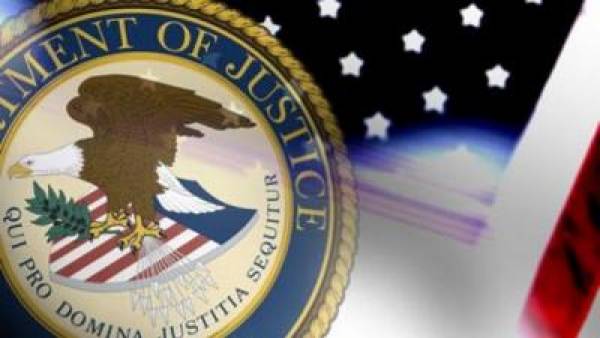Has Online Poker Become Legal in the United States: DOJ Plays Santa

Following a shock announcement that has the online poker community wondering if the floodgates may soon be opening, experts and the media alike were attempting to interpret the US Department of Justice new stance on Internet poker’s legality. It appears the activity may no longer be viewed as “illegal”.
From the Wall Street Journal:
Ah, the holidays. If you’re a poker player, the Justice Department has given you a pretty nifty gift in the way of this little-noticed legal memorandum.
In a nutshell, the department’s Office of Legal Counsel has determined that the Federal Wire Act, the 1961 law that had been interpreted to outlaw all forms of gambling across state lines, actually only applies to “a sporting event or contest.”
Well, what does this mean? It means that Internet poker isn’t barred by any federal statute.
The Unlawful Internet Gambling Act (UIGEA), a separate statue, allows federal authorities to prosecute people who knowingly accept most forms of payment in connection with unlawful Internet gambling. But the key word is “unlawful.”...
While it is true that three of the world’s one time largest online poker rooms were named in a federal complaint last April, the primary chargers involved money laundering and bank fraud. Assuming poker is no longer considered “unlawful”, deliberate misrepresentation of gambling transactions as dog food and golf ball purchases could be.
From a state perspective, this announcement may have unprecedented consequences. Nevada has already approved intrastate online poker within its state’s borders. Its rather sparse population may not support a financially lucrative industry but joining forces with other “opt-in” states would likely prove significant. States like New Jersey, California, Iowa, Florida and the District of Columbia have all considered offering online poker to its residents.
One poker playing attorney and blogger out of Iowa offered his opinion on this matter:
The change in the DOJ opinion on the Wire Act is a big deal in two respects. First, it removes one federal criminal statute from the weapons prosecutors can wield over online poker companies. Second, and to my mind more important, it removes a potential legal barrier that would otherwise prevent states which legalize intrastate online poker from forming multi-state online poker consortiums to permit residents of states with reciprocal regulations to play against each other (akin to multi-state lotteries) in the event poker legalization occurs at the state level rather than the federal level (as increasingly seems the most likely path forward). The Wire Act does contain an exemption for transmitting wagering information from a state or country where it's legal to another such state or country, but when it comes to federal criminal law, it's better to know you aren't covered by the law in the DOJ's eyes than to have to worry about how a prosecutor or judge will interpret the law.
If and when multiple states permit online poker, then one should expect multi-state consortiums to develop to permit online poker play between residents of states with similar online poker regulations.
And what about the European, Costa Rican and Caribbean based online poker rooms, some of which already conduct business with US citizens?
If banks begin allowing coded transactions specific to online poker, this may benefit these organizations as well. It is no secret that the banking sector has never embraced the notion that they were essentially placed in charge of policing Web gambling as part of an unfunded mandate (UIGEA).
What won’t change – at least for now – is that residents of Washington State could still be prosecuted for a Class C felony if they elect to play poker online. Washington is the only state to specifically criminalize online poker at this juncture in time.
While the DoJ specifically said in their letter they will continue to use the UIGEA to prosecute gambling that violates state law, this may only apply to states like Washington, though others could choose to follow suit. Opt-in/Opt-out states might change periodically as is the case with online horse racing, considered legal under UIGEA. Certain states like New Jersey do not permit residents to bet horses online. TwinSpires.com, which is the biggest of the online race books, routinely changes its wagering policy as it applies to the state of Texas.
- Chris Costigan, Gambling911.com Publisher









